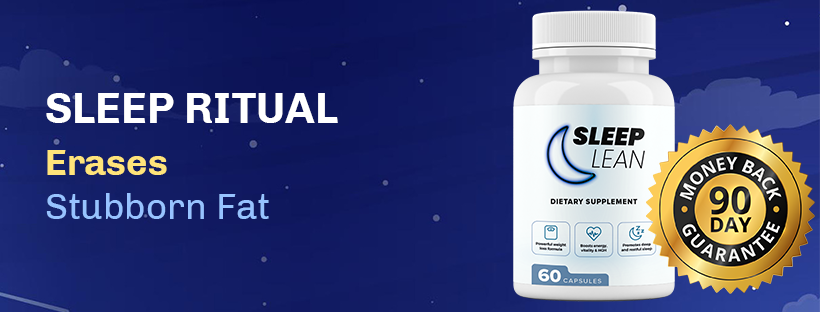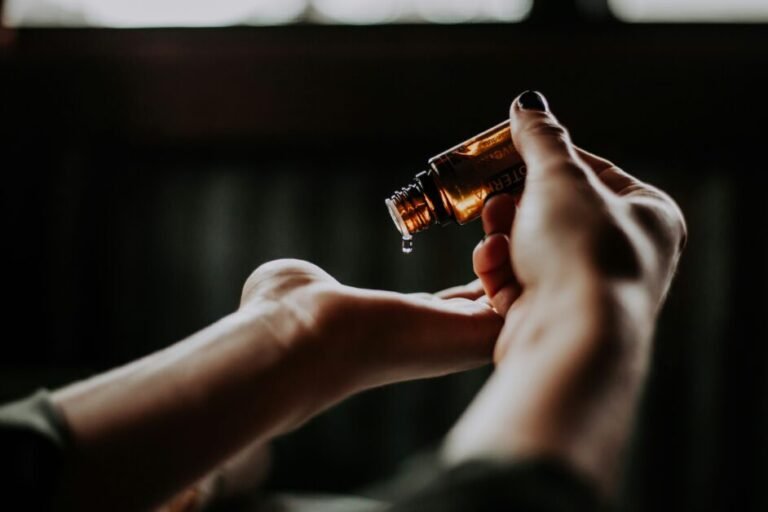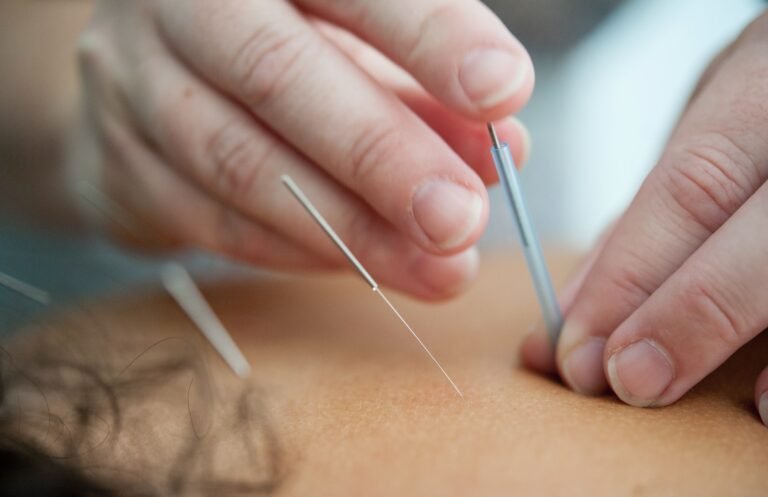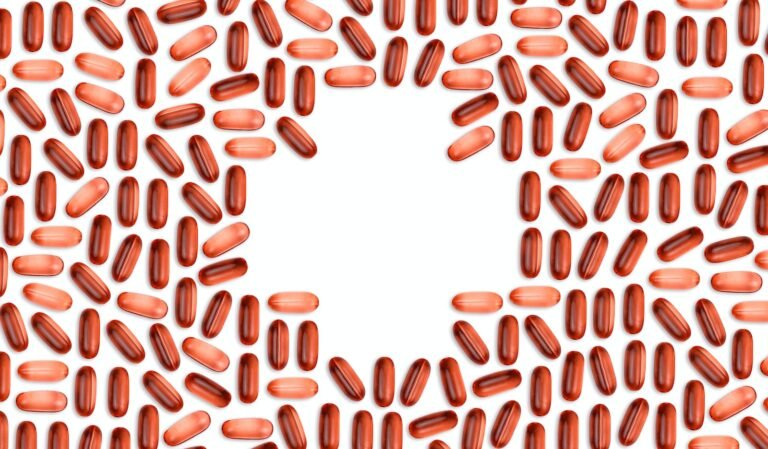Understanding the Power of Acupuncture in Alternative Medicine
Introduction
What is acupuncture?
What is acupuncture? Acupuncture is a traditional Chinese medicine practice that involves the insertion of thin needles into specific points on the body. These points, known as acupuncture points, are believed to be connected by pathways or meridians through which vital energy, or Qi, flows. By stimulating these points, acupuncture aims to restore the balance of Qi and promote the body’s natural healing process. Acupuncture has been used for centuries to treat a wide range of conditions, including pain, stress, digestive disorders, and even mental health issues. Today, it is widely recognized as a safe and effective form of alternative medicine, gaining popularity in Western countries as well.
History of acupuncture
The history of acupuncture dates back thousands of years, originating in ancient China. It is believed to have been practiced as early as 6000 BCE, making it one of the oldest healing techniques in the world. Acupuncture is deeply rooted in traditional Chinese medicine, which views the body as a complex system of energy flow known as Qi. According to historical records, the development of acupuncture can be attributed to the observations and experiences of ancient Chinese healers who discovered that stimulating specific points on the body could alleviate pain and promote healing. Over time, acupuncture techniques evolved and were refined, leading to the comprehensive system of diagnosis and treatment that is widely practiced today. Understanding the rich history of acupuncture provides valuable insights into its effectiveness and enduring popularity in alternative medicine.
Principles of acupuncture
Acupuncture is based on a set of principles that have been developed and refined over thousands of years. These principles form the foundation of this ancient practice and guide acupuncturists in their treatment approach. One of the key principles is the concept of Qi (pronounced “chee”), which is believed to be the vital energy that flows through the body. According to acupuncture theory, when the flow of Qi is disrupted or blocked, it can lead to pain, illness, or other health issues. By inserting thin needles into specific points along the body’s meridian pathways, acupuncturists aim to restore the balance and flow of Qi, promoting overall well-being and health. Additionally, acupuncture is also guided by the principle of Yin and Yang, representing the opposing but complementary forces in the body. The goal of acupuncture is to harmonize these forces and restore the body’s natural equilibrium. By understanding and applying these principles, acupuncturists can effectively address a wide range of health conditions and provide holistic healing to their patients.
Benefits of Acupuncture
Pain management
Pain management is one of the most widely recognized and sought-after benefits of acupuncture in alternative medicine. Acupuncture has been proven to effectively alleviate various types of pain, including chronic pain, migraines, and musculoskeletal discomfort. By stimulating specific points on the body, acupuncture promotes the release of endorphins, which are natural pain-relieving chemicals. Additionally, it helps to reduce inflammation and improve blood circulation, further contributing to pain relief. Many individuals who have tried acupuncture for pain management have reported significant improvements in their symptoms and a reduction in their reliance on pain medications. With its holistic approach and minimal side effects, acupuncture has become an increasingly popular choice for those seeking a natural and effective solution to manage their pain.
Stress and anxiety reduction
Stress and anxiety reduction is one of the key benefits of acupuncture in alternative medicine. In today’s fast-paced and demanding world, many individuals experience high levels of stress and anxiety, which can have detrimental effects on their overall well-being. Acupuncture, a traditional Chinese medicine practice, has been found to be effective in reducing stress and anxiety by promoting relaxation and restoring balance in the body. By inserting thin needles into specific points on the body, acupuncture stimulates the release of endorphins, which are natural painkillers and mood enhancers. This process helps to calm the mind, alleviate tension, and improve sleep quality, ultimately leading to a reduction in stress and anxiety levels. Moreover, acupuncture sessions provide individuals with a peaceful and tranquil environment, allowing them to disconnect from their daily stressors and focus on their well-being. With its holistic approach, acupuncture offers a natural and drug-free solution for managing stress and anxiety, making it a valuable tool in alternative medicine.
Improved sleep quality
Improved sleep quality is one of the many benefits that acupuncture offers in the realm of alternative medicine. Many individuals struggle with sleep disorders, such as insomnia, which can have a significant impact on their overall well-being. Acupuncture, a traditional Chinese practice, has been found to be effective in promoting better sleep patterns. By targeting specific acupuncture points, practitioners aim to restore the balance of energy within the body, which can help regulate sleep-wake cycles. Additionally, acupuncture has been shown to reduce anxiety and stress levels, both of which can contribute to sleep disturbances. With regular acupuncture sessions, individuals often experience improved sleep quality, waking up feeling refreshed and rejuvenated. This natural and holistic approach to addressing sleep issues makes acupuncture a valuable tool in alternative medicine.
How Acupuncture Works
Meridian system
The meridian system is a fundamental concept in acupuncture, which forms the basis for understanding how acupuncture works. According to traditional Chinese medicine, the human body is traversed by a network of channels called meridians, through which vital energy, known as Qi, flows. These meridians are believed to connect various organs and tissues, forming a complex web of interconnected pathways. Acupuncture points, also known as acupoints, are specific locations along these meridians where the Qi can be accessed and manipulated to restore balance and promote healing. By stimulating these acupoints with thin needles, acupuncture practitioners aim to regulate the flow of Qi, addressing imbalances and promoting overall well-being. The meridian system is a key component of acupuncture therapy and plays a crucial role in the effectiveness of this ancient healing practice.
Stimulating acupuncture points
Stimulating acupuncture points is a fundamental aspect of acupuncture therapy, which involves the insertion of thin needles into specific points on the body. These points, also known as acupoints, are believed to be interconnected pathways that allow the flow of vital energy, or Qi, throughout the body. By stimulating these points, acupuncturists aim to restore the balance of Qi, promoting overall health and well-being. The stimulation can be achieved through various techniques, such as manual manipulation of the needles, the application of heat or electrical stimulation, or even the use of herbal remedies. Each acupoint corresponds to different organs or systems in the body, and the selection of specific points is based on the individual’s symptoms and diagnosis. Through the precise and targeted stimulation of acupuncture points, this ancient practice has shown promising results in alleviating pain, reducing stress, improving circulation, and enhancing the body’s natural healing abilities.
Release of endorphins
Release of endorphins is one of the key mechanisms through which acupuncture exerts its therapeutic effects in alternative medicine. Endorphins are natural pain-relieving chemicals produced by the body, and their release can help alleviate pain and promote a sense of well-being. During an acupuncture session, the insertion of thin needles into specific points on the body stimulates the release of endorphins, which then bind to opioid receptors in the brain and spinal cord. This interaction not only reduces pain perception but also enhances mood, reduces stress, and promotes relaxation. The release of endorphins through acupuncture is believed to play a crucial role in the treatment of various conditions, including chronic pain, migraines, and even mental health disorders such as anxiety and depression. By harnessing the power of endorphins, acupuncture offers a natural and holistic approach to healing and improving overall well-being.
Conditions Treated with Acupuncture
Chronic pain
Chronic pain is a debilitating condition that affects millions of individuals worldwide, often leading to a decreased quality of life and limited functionality. However, acupuncture has emerged as a promising alternative medicine approach for managing and alleviating chronic pain. This ancient Chinese practice involves the insertion of thin needles into specific points on the body, stimulating the release of endorphins and promoting the body’s natural healing process. Numerous studies have demonstrated the effectiveness of acupuncture in reducing pain intensity and improving physical function in patients with chronic conditions such as arthritis, fibromyalgia, and lower back pain. By targeting the underlying causes of pain rather than merely masking the symptoms, acupuncture offers a holistic and drug-free solution for individuals seeking long-term relief from chronic pain.
Digestive disorders
Digestive disorders are a common health issue affecting a significant portion of the population, and acupuncture has emerged as a promising alternative treatment option. Acupuncture, an ancient Chinese practice, involves the insertion of thin needles into specific points on the body to stimulate energy flow and restore balance. When it comes to digestive disorders, acupuncture has shown remarkable effectiveness in alleviating symptoms such as indigestion, bloating, constipation, and irritable bowel syndrome (IBS). By targeting specific acupuncture points related to the digestive system, this holistic therapy can help regulate gastrointestinal motility, reduce inflammation, and improve overall digestive function. Additionally, acupuncture has been found to have a positive impact on stress reduction, which is often a contributing factor to digestive disorders. As a non-invasive and drug-free approach, acupuncture offers a safe and natural solution for individuals seeking relief from digestive issues, providing them with a renewed sense of well-being and improved quality of life.
Mental health conditions
Mental health conditions have become increasingly prevalent in today’s society, and the search for effective treatment options has intensified. Acupuncture, a key component of alternative medicine, has shown promising results in addressing various mental health conditions. This ancient Chinese practice involves the insertion of thin needles into specific points on the body to stimulate energy flow and restore balance. Studies have indicated that acupuncture can be beneficial in alleviating symptoms of anxiety, depression, and stress-related disorders. By targeting the body’s energy pathways, acupuncture aims to promote relaxation, reduce tension, and enhance overall well-being. Furthermore, this holistic approach to mental health treatment offers a natural alternative to conventional therapies, often avoiding the side effects associated with medications. As more research is conducted, acupuncture continues to gain recognition as a valuable tool in managing mental health conditions.
Acupuncture Techniques
Traditional Chinese acupuncture
Traditional Chinese acupuncture is a holistic healing practice that dates back thousands of years. Based on the principles of traditional Chinese medicine, it involves the insertion of thin needles into specific points on the body to restore the flow of energy, known as Qi. According to traditional Chinese acupuncture, when Qi becomes blocked or imbalanced, it can lead to various physical and emotional ailments. By stimulating these specific points, acupuncture aims to rebalance the body’s energy, promoting overall health and well-being. This ancient practice has gained recognition and popularity in the Western world as an effective alternative medicine approach, offering a natural and non-invasive way to address a wide range of health conditions.
Electroacupuncture
Electroacupuncture is a modern variation of traditional acupuncture that involves the use of electrical stimulation alongside the insertion of acupuncture needles. This technique has gained popularity in recent years due to its potential to enhance the therapeutic effects of acupuncture. During an electroacupuncture session, a small electric current is applied to the inserted needles, which can vary in frequency and intensity depending on the condition being treated. The electrical stimulation is believed to promote the flow of energy, or Qi, throughout the body, thus aiding in the restoration of balance and the alleviation of pain or discomfort. Additionally, electroacupuncture has been found to stimulate the release of endorphins, which are natural pain-relieving chemicals in the body. This technique is commonly used to address a wide range of conditions, including chronic pain, musculoskeletal disorders, neurological disorders, and even addiction. With its ability to enhance the therapeutic effects of acupuncture, electroacupuncture offers a promising approach in the field of alternative medicine.
Auricular acupuncture
Auricular acupuncture, also known as ear acupuncture, is a specialized form of acupuncture that focuses on stimulating specific points on the ear. This technique is based on the belief that the ear is a microsystem of the entire body, with each point on the ear corresponding to a specific organ or body part. By inserting tiny needles or applying pressure to these points, auricular acupuncture aims to restore balance and promote healing throughout the body. This practice has been used for centuries in traditional Chinese medicine and is gaining recognition in the field of alternative medicine for its effectiveness in treating various conditions, including pain management, addiction, stress, and anxiety. Research suggests that auricular acupuncture may work by stimulating the release of endorphins, which are natural pain-relieving and mood-enhancing chemicals in the body. Additionally, it is a non-invasive and relatively low-risk procedure, making it a popular choice for those seeking alternative treatment options.
Safety and Effectiveness of Acupuncture
Minimal side effects
Minimal side effects
One of the key advantages of acupuncture as a form of alternative medicine is its minimal side effects. Unlike many conventional treatments that often come with a long list of potential adverse reactions, acupuncture is generally considered safe when performed by a trained and licensed practitioner. The most common side effects reported are mild and temporary, such as slight bruising or soreness at the needle insertion sites. These side effects typically subside quickly and are outweighed by the potential benefits of acupuncture. Additionally, acupuncture does not involve the use of pharmaceutical drugs, reducing the risk of allergic reactions or interactions with other medications. Overall, the minimal side effects associated with acupuncture make it an appealing option for individuals seeking a safe and natural approach to healing and wellness.
Research and evidence
Research and evidence have played a crucial role in understanding the power of acupuncture in alternative medicine. Numerous studies have been conducted to explore the effectiveness of acupuncture in treating various conditions, such as chronic pain, migraines, and even mental health disorders. For instance, a systematic review published in the Journal of Pain found that acupuncture was more effective than sham acupuncture and standard care in providing pain relief for chronic musculoskeletal conditions. Additionally, a meta-analysis published in JAMA Internal Medicine revealed that acupuncture was associated with a significant reduction in the frequency of migraines compared to conventional medication. These findings, along with many others, provide compelling evidence supporting the use of acupuncture as a valuable therapeutic option in alternative medicine.
Choosing a qualified acupuncturist
When it comes to choosing a qualified acupuncturist, there are a few key factors to consider. Firstly, it is important to ensure that the acupuncturist is licensed and certified by a recognized governing body. This ensures that they have undergone the necessary training and education to practice acupuncture safely and effectively. Additionally, it is beneficial to seek out an acupuncturist who has experience and expertise in treating the specific condition or ailment you are seeking treatment for. Reading reviews and testimonials from previous patients can also provide valuable insights into the acupuncturist’s skills and patient satisfaction. Lastly, it is crucial to find an acupuncturist who makes you feel comfortable and at ease during the treatment process, as a positive therapeutic relationship can greatly enhance the overall effectiveness of acupuncture.









